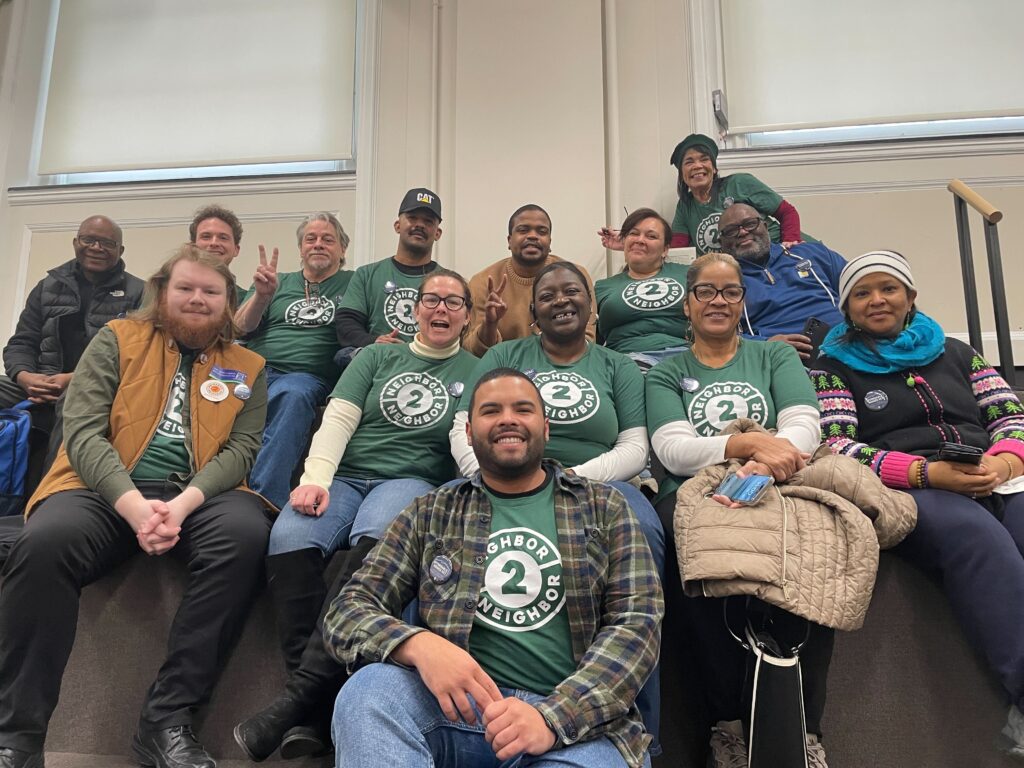
On Thursday, January 18th, Neighbor to Neighbor members joined residents from across the state to testify before the Joint Committee on Housing in support of the Affordable Homes Act.
The hearing was packed with residents and housing advocates, most of whom were in support of the Affordable Homes Act (H.4138) as a means to mitigate the housing crisis facing the state.
Neighbor to Neighbor members from the organization’s Lynn, Springfield and Holyoke chapters – all of which are leading local housing campaigns – shared their housing stories, solutions, and support for the legislation through oral and written testimony.
“There is this narrative that folks who get assistance with housing should be satisfied with what they get, because of that we have been forced to live in housing that is rodent and rat infested, windows and doors that are drafty, water damaged ceiling or cabinets. This funding will allow for our homes to be updated and dignified.” – Michael Wright, N2N Springfield Chapter
“In a state that is hemorrhaging its young people who move to other states because they can’t afford to live here, please think about the impact this act will have on our youth’s ability to create a legacy, to ground themselves here, and begin lives as the next generation in their home state.” – Allison Luke, N2N Lynn Chapter
While N2N supports the Affordable Homes Act, it also recommends additions to better protect low and middle income people and families, who are most impacted by the housing crisis.
“Nominal affordability is meaningless if it is not accessible to those who truly need affordable housing. Therefore, I urge for changes to be made to the [CommonWealth Builder] program to accommodate individuals who fall within the 60-80% AMI range. This would ensure that the residents of gateway cities are the ones who benefit from these housing opportunities.” – Christopher DeLeon, N2N Holyoke Chapter
“We want to point out the importance of tenants’ rights enforcement in solving the housing crisis. As in much of the Commonwealth, many of the too-few affordable housing units available are in poor condition because landlords have ignored their duty to provide housing that complies with Massachusetts’ warranties of habitability. While state law does allow local health departments to enforce these rights, most local health departments lack the funding and staffing to do so – this means that the enforcement task with which those departments are charged is essentially an unfunded mandate – worse, it means that tenants have little or no recourse when a landlord violates their rights, thus making those rights non-existent. The addition of a statewide office of tenant protections under this Act’s proposed Office of Fair Housing, and the establishment of a tenant’s right to counsel in eviction proceedings, would help to remedy this critical enforcement gap.” – Miles Gresham, N2N Policy Director.
